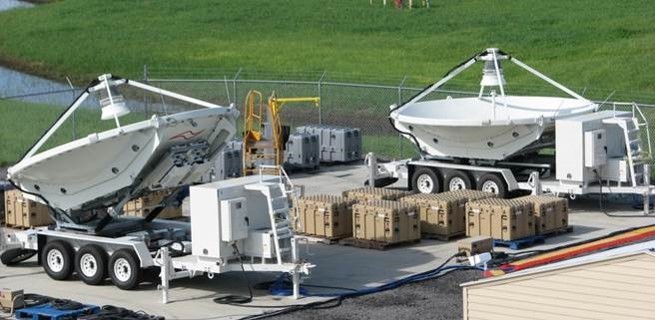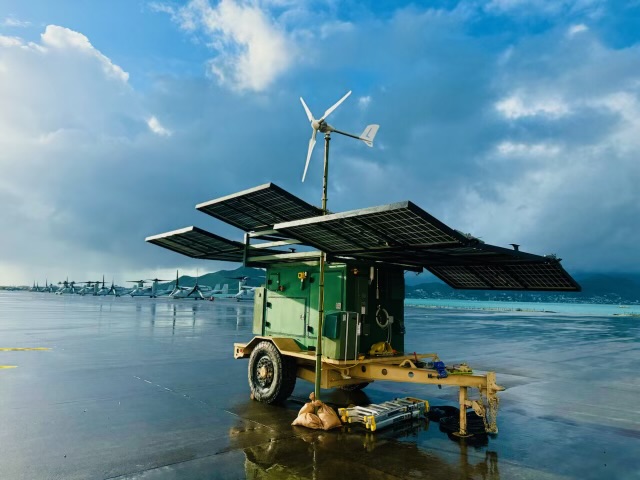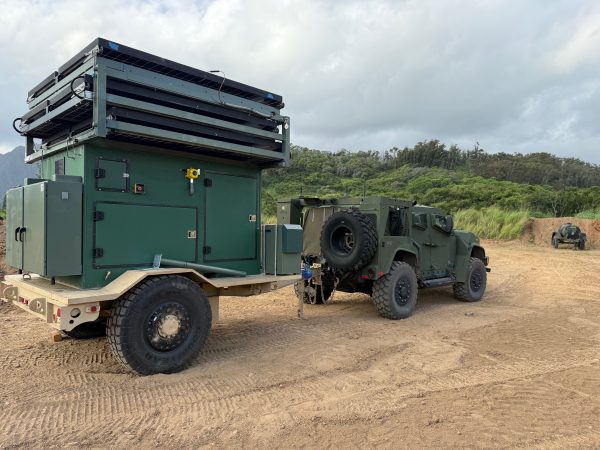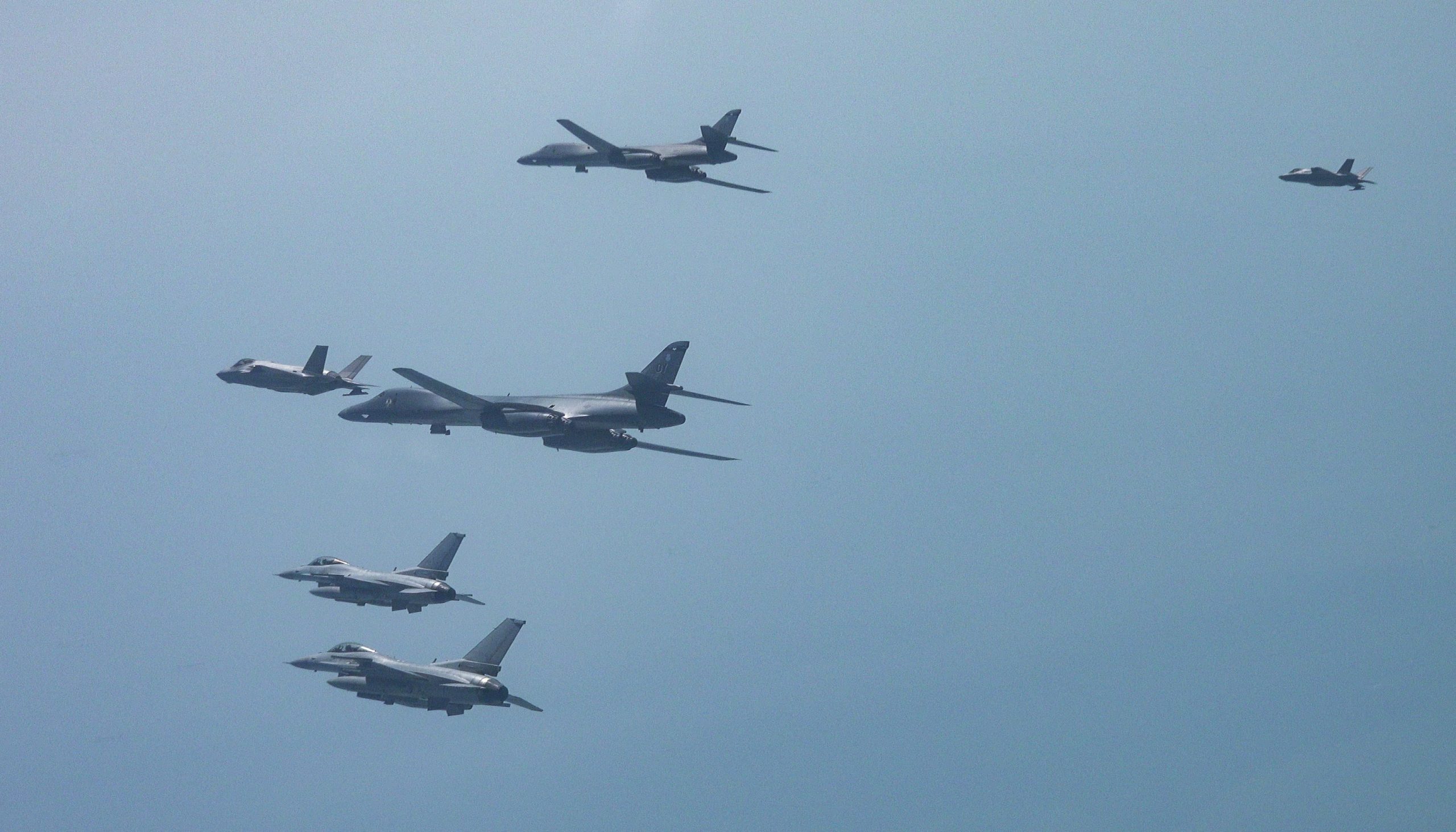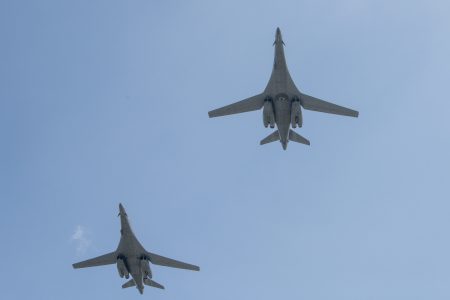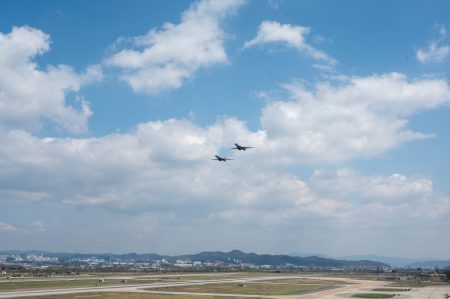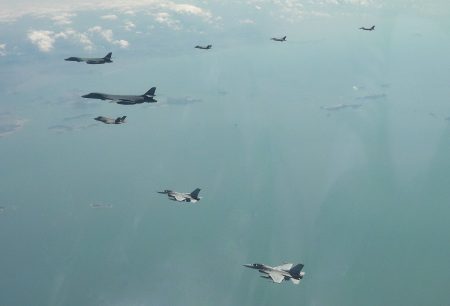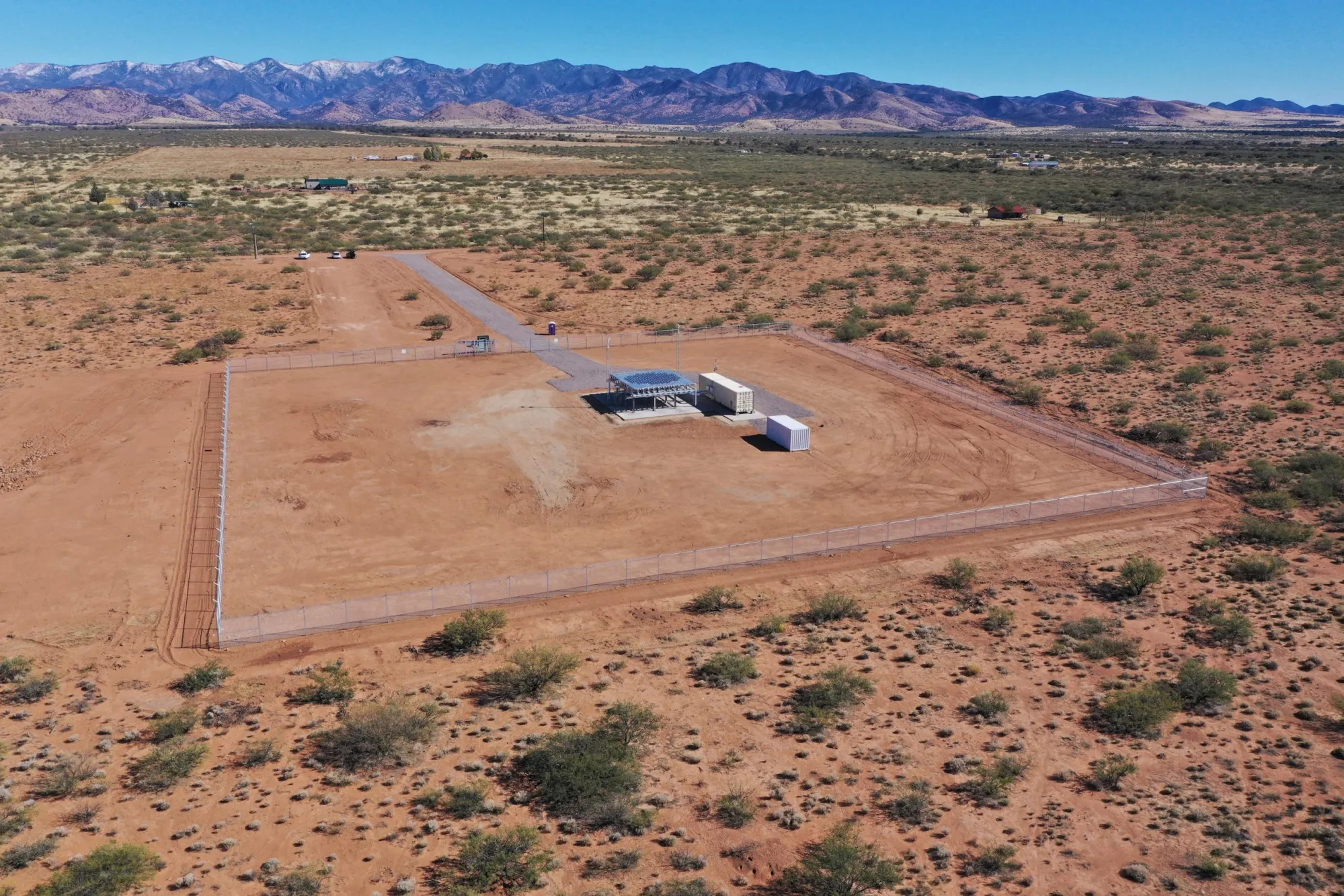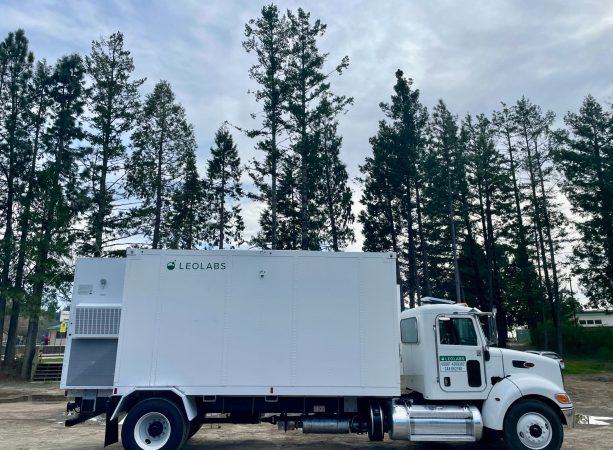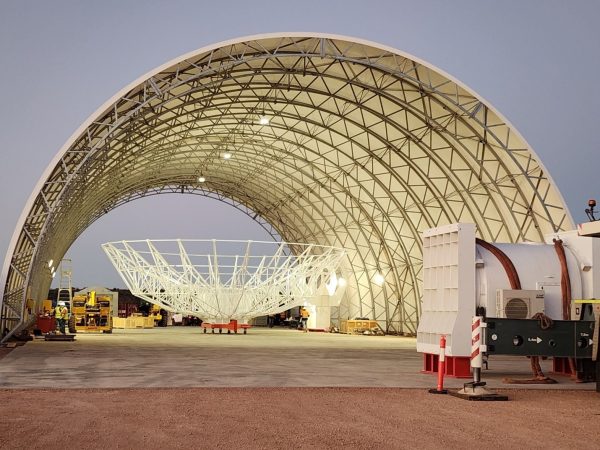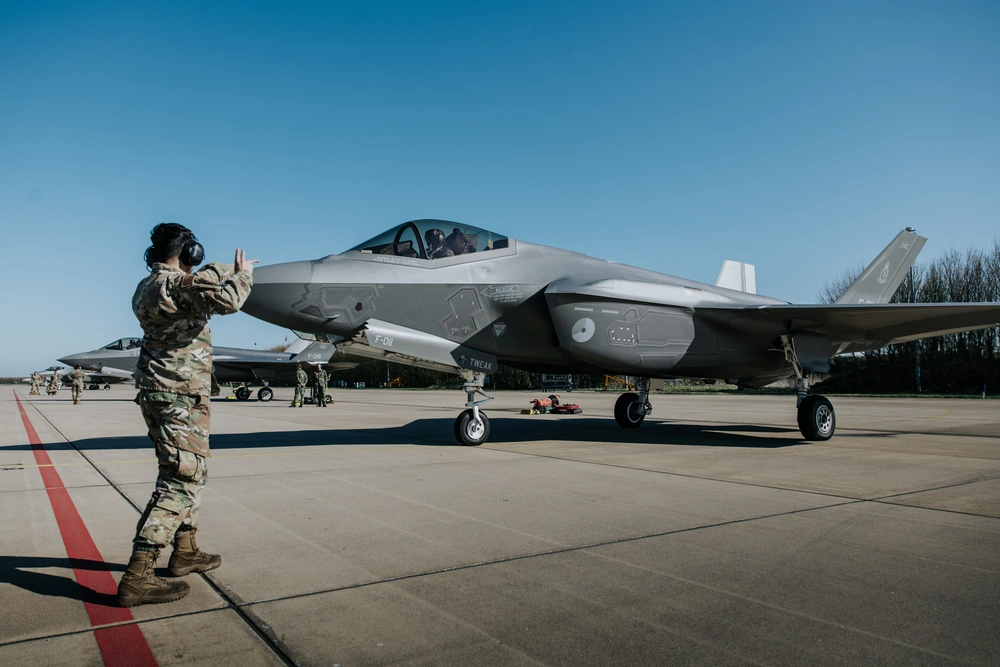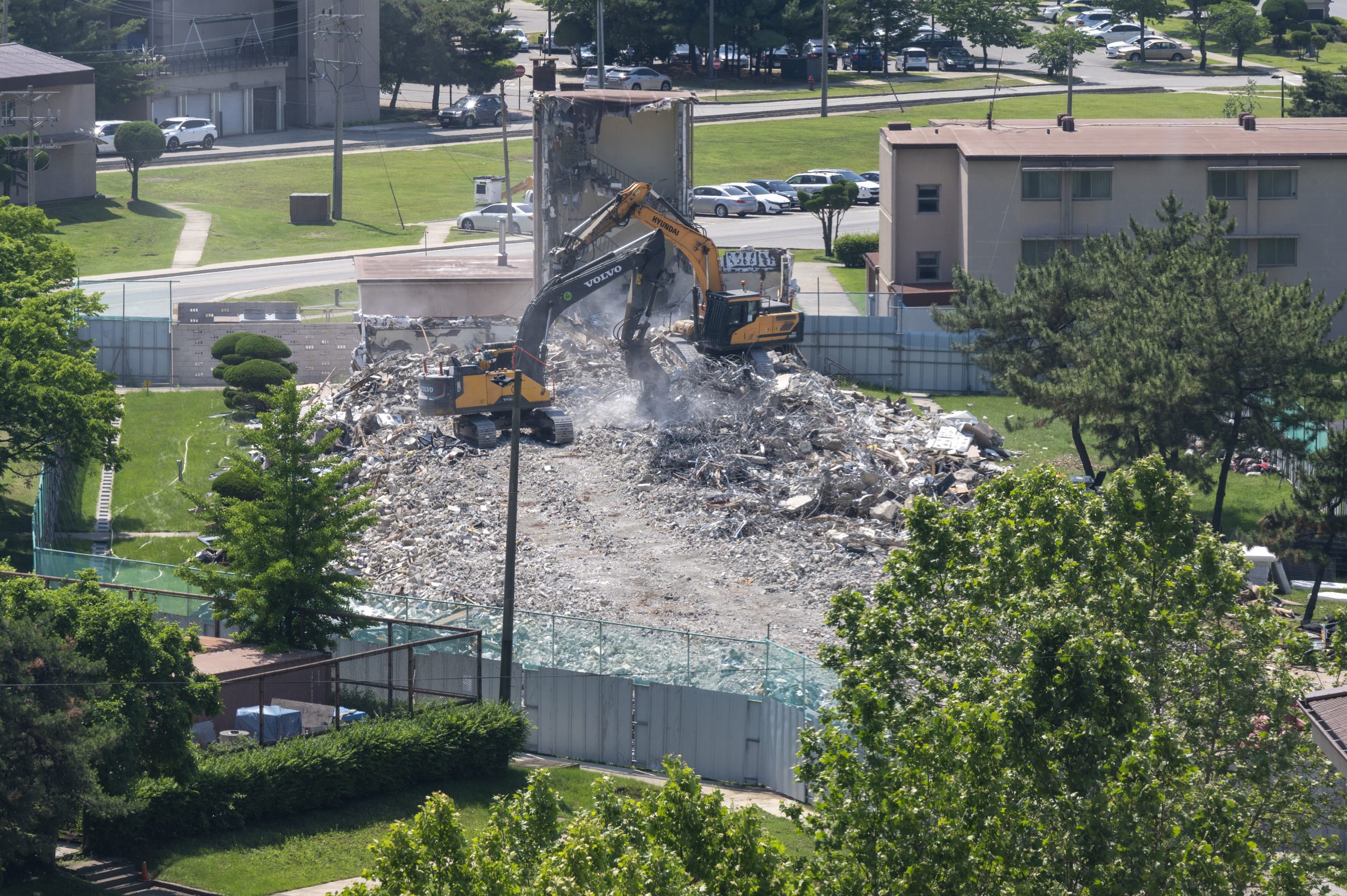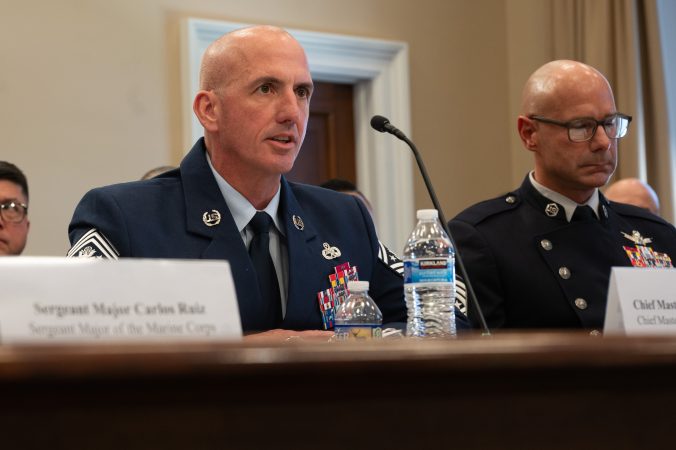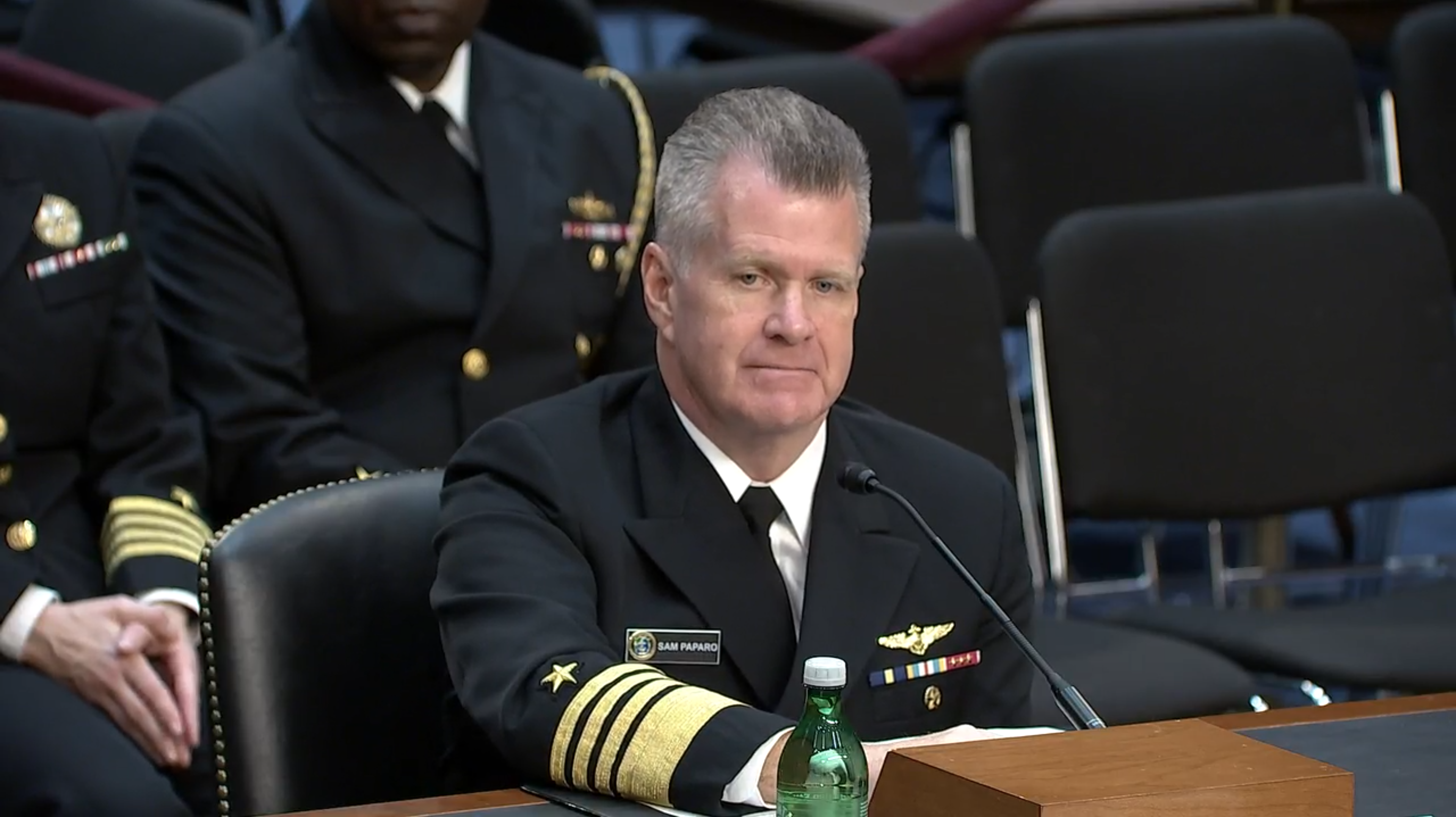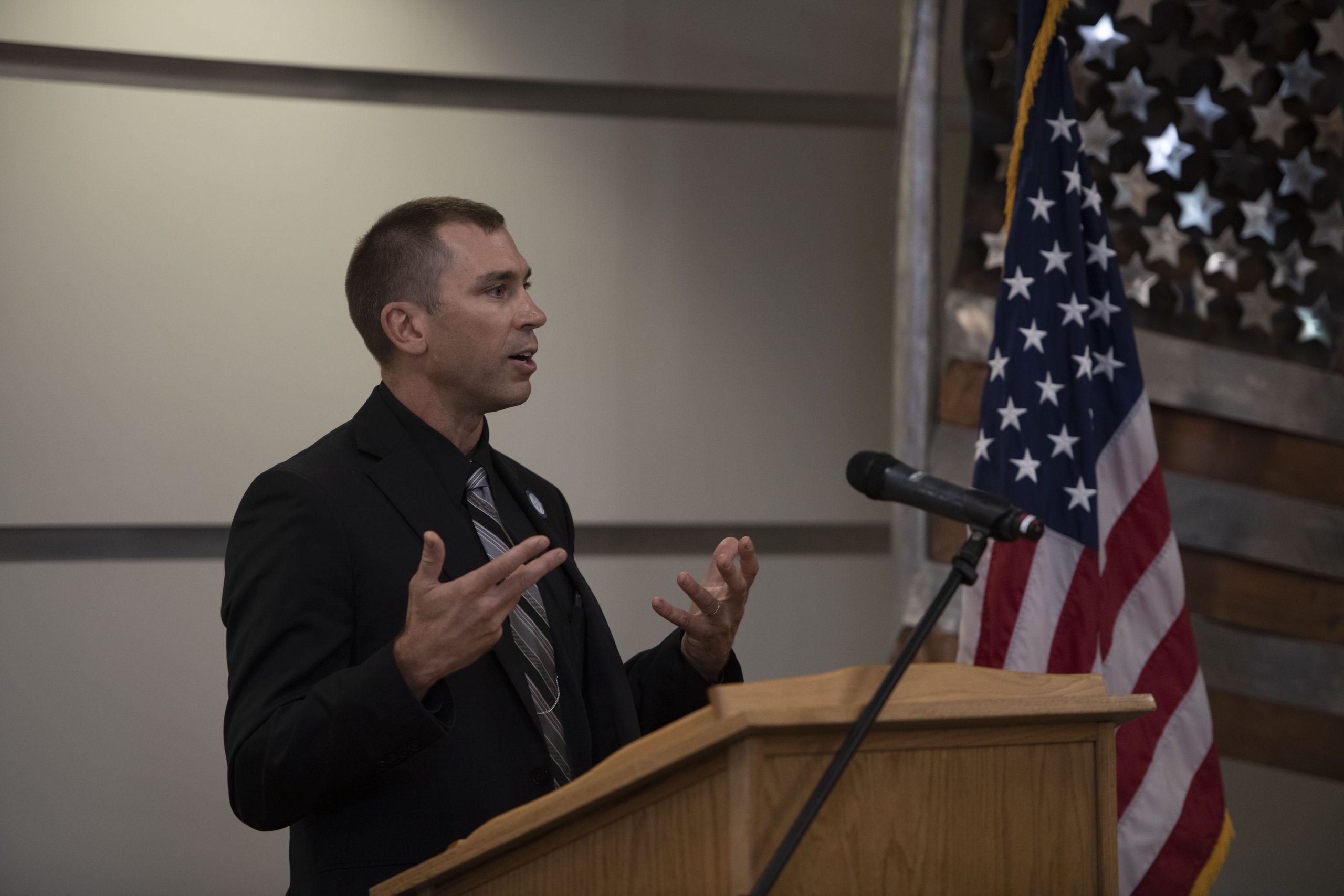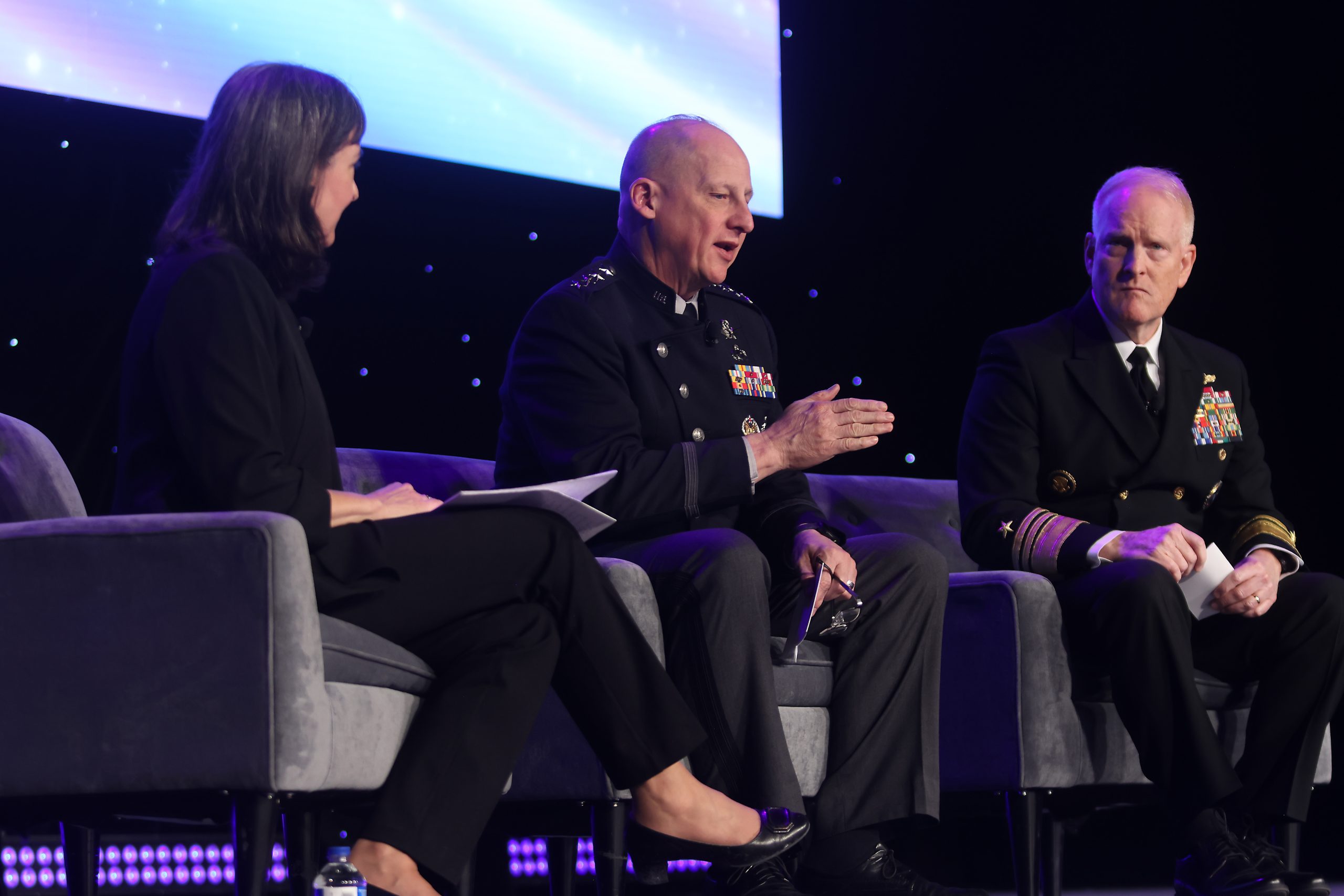COLORADO SPRINGS, Colo.—As Space Force leaders grow more vocal and direct in calling for space weapons to control the domain, one official revealed last week that the Space Force has received a major upgrade to one of its few acknowledged space weapons.
The Space Force formally accepted its first “Meadowlands” system, said Col. Bryon McClain, program executive officer for combat power and space domain awareness, during last week’s Space Symposium. Meadowlands updates the Counter Communications System, a ground-based offensive platform designed to jam and disrupt adversaries’ satellite communications.
“It is now ours to really move forward into the formal … developmental testing and operational testing,” McClain said. “We’ve had good success with the contractor testing, and [now government testing] is moving forward.”
L3Harris won the contest to upgrade CCS in 2021, and the company announced in April 8 that its system passed a system verification review.
Both McClain and L3Harris have described Meadowlands as including hardware and software improvements to provide the Space Force with increased capability and flexibility.
In a statement, L3Harris vice president of surveillance systems Andy Builta said Meadowlands was “designed to be small, transportable, and cost-effective.” McClain noted that it will have the ability to be operated remotely, so “we can reduce the number of people that are physically sitting by the antenna, turning knobs and pushing buttons. The farther we can separate that, that gives us a lot of flexibility for the warfighter.”
Both officials also noted that this Meadowlands upgrade will allow future updates to CCS to be deployed more quickly. McClain called it a “fundamental upgrade of computer systems;” L3Harris said the open architecture software system will make it “easier to make software updates” in the future.
Meadowlands is just a small part of McClain’s weapons portfolio, most of which is classified. Chief of Space Operations Gen. B. Chance Saltzman’s increasing emphasis on space superiority points to future investments in space and counter-space weapons.
U.S. Space Command boss Gen. Stephen N. Whiting echoed that call at the symposium. “It’s time that we can clearly say that we need space fires and we need weapon systems,” Whiting said. “We need orbital interceptors. And what do we call these? We call these weapons, and we need them to deter a space conflict and to be successful if we end up in such a fight.”
McClain stands to see growth in his budget areas as the Space Force forges that future. “I would not be surprised if there’s continued growth there,” he said. Talking about it, however, may take longer still. “The challenge is Gen. Saltzman is able to talk very broadly about the concepts,” McClain explained. “Where it comes down to me, is doing the specifics. And that’s where the wall [goes up on] what I can and can’t say.”
In an on-stage interview, Space Forces-Space commander Lt. Gen. Douglas A. Schiess hinted that Saltzman and Whiting’s calls for space weapons are already translating into market research and early acquisition work.
“To get after protecting the joint force from space enabled attack, I need the capability to deny, disrupt, and degrade those red kill chains,” Schiess said. “I need that from our commercial partners, and I’ve talked to many of you this week, and we need to continue to build up to that.”
